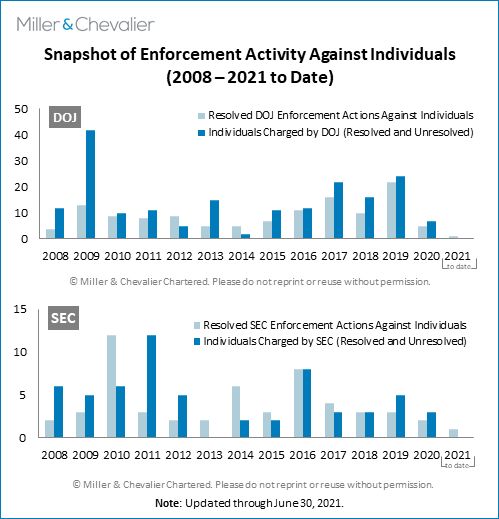___________________________________________________________________________________
___________________________________________________________________________________
RELATED CONTENT ON THIS BLOG 19 Dec 2023
23 December 2023
FIFA: Compliance into the Weeds: Congress Fills a Corruption Hole: The Foreign Extortion Prevention Act
Tom Fox, a seasoned compliance professional, views FEPA as a long overdue measure that fills a gap in anti-corruption efforts. He agrees with Matt Kelly, a respected analyst in the field, who emphasizes that FEPA addresses a long-standing concern of anti-corruption advocates. Both Fox and Kelly anticipate further guidance from the Department of Justice on how this new law will interact with existing measures under the FCPA. Join Tom Fox and Matt Kelly as they delve deeper into this topic into this final episode of the Compliance into the Weeds for 2023 but plan to join us again in 2024.
___________________________________________________________________________________
A provision of the recently signed National Defense Authorization Act allows U.S. authorities to prosecute officials from other countries who engage in demanding or accepting bribes from Americans or U.S. companies trying to secure business interests.
The new provision, called the Foreign Extortion Prevention Act, complements the Foreign Corrupt Practices Act, a law already in place that bans paying bribes to foreign officials to keep or win businesses in other countries, The Wall Street Journal reported.
Under the new provision, violators face fines of no more than $250,000 or three times the value of the attempted bribe, can be put in prison for up to 15 years, or both, and comes after efforts from the U.S. Chamber of Commerce and a bipartisan commission of government watchdogs and anti-corruption groups.
"Without this, the U.S. legal arsenal for combating international corruption was incomplete" said Tom Firestone, a partner at law firm Squire Patton Boggs who specializes in white-collar crime.
The Corrupt Practices Act handles the supply side of the issue, while the new law addresses the demand side, and if it is "enforced effectively, it would hopefully protect U.S. companies operating abroad so they won’t be subject to these demands," Firestone said.
- Transparency International U.S., which helped craft the legislation, said FEPA will root out foreign corruption at its source.
- "This, without question, is the most consequential anti-foreign-bribery law passed in almost 50 years," said Scott Greytak, director of advocacy for Transparency International.
And even if such officials can't be brought to trial, they can still be charged, as they can be arrested if they travel or while remaining in their own country because they are afraid to travel, said Firestone, a former federal prosecutor.
Sandy Fitzgerald | editorial.fitzgerald@newsmax.com
Sandy Fitzgerald has more than three decades in journalism and serves as a general assignment writer for Newsmax covering news, media, and politics.
Foreign Corrupt Practices Act
An Overview
The Foreign Corrupt Practices Act of 1977, as amended, 15 U.S.C. §§ 78dd-1, et seq. ("FCPA"), was enacted for the purpose of making it unlawful for certain classes of persons and entities to make payments to foreign government officials to assist in obtaining or retaining business. Specifically, the anti-bribery provisions of the FCPA prohibit the willful use of the mails or any means of instrumentality of interstate commerce corruptly in furtherance of any offer, payment, promise to pay, or authorization of the payment of money or anything of value to any person, while knowing that all or a portion of such money or thing of value will be offered, given or promised, directly or indirectly, to a foreign official to influence the foreign official in his or her official capacity, induce the foreign official to do or omit to do an act in violation of his or her lawful duty, or to secure any improper advantage in order to assist in obtaining or retaining business for or with, or directing business to, any person.
Since 1977, the anti-bribery provisions of the FCPA have applied to all U.S. persons and certain foreign issuers of securities. With the enactment of certain amendments in 1998, the anti-bribery provisions of the FCPA now also apply to foreign firms and persons who cause, directly or through agents, an act in furtherance of such a corrupt payment to take place within the territory of the United States.
The FCPA also requires companies whose securities are listed in the United States to meet its accounting provisions. See 15 U.S.C. § 78m. These accounting provisions, which were designed to operate in tandem with the anti-bribery provisions of the FCPA, require corporations covered by the provisions to (a) make and keep books and records that accurately and fairly reflect the transactions of the corporation and (b) devise and maintain an adequate system of internal accounting controls.
For particular FCPA compliance questions relating to specific conduct, you should seek the advice of counsel as well as consider using the Department of Justice's FCPA Opinion Procedure, found here.
Contact us Regarding the FCPA
By Mail
Correspondence relating to the Foreign Corrupt Practices Act (FCPA) may be sent to:
Fraud Section, Criminal Division
U.S. Department of Justice
ATTN: Chief, FCPA Unit
950 Constitution Ave., NW
Washington, DC 20530
By E-Mail
Report a FCPA Violation via Email to FCPA.Fraud@usdoj.gov
Updated September 26, 2023__










No comments:
Post a Comment